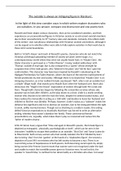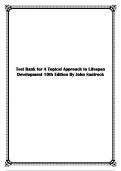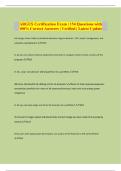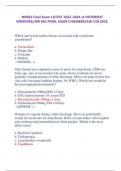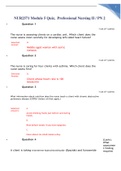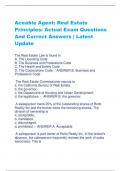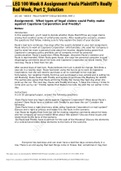Essay
'The outsider is always an intriguing figure in literature' essay comparing Rossetti and Ibsen
- Course
- Institution
Exemplar comparison essay between Christina Rossetti's poetry and Henrik Ibsen's 'A Doll's House' - essay question: 'the outsider is always an intriguing figure in literature' - example of an A response to a challenging exam question
[Show more]
